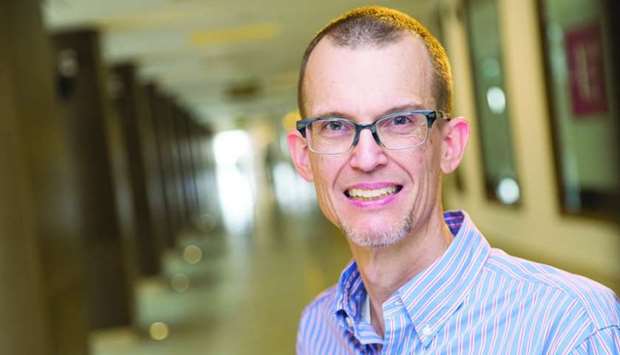Dudley Reynolds, a teaching professor of English at Carnegie Mellon University of Qatar (CMU-Q), has urged education systems around the world to examine how they support their communities’ language resources.
In a research report he prepared for the World Innovation Summit for Education (WISE), held recently in Doha, Reynolds offered a frank discussion of issues that must be addressed to build cohesive communities.
The report, titled 'Language Policy in Globalised Contexts', suggests that languages should not be in competition with each other, particularly in the classroom. Reynolds states, “We live in an age where multilingualism is the norm. Language represents cultural identity and national belonging, as well as communication beyond political borders.”
He believes that too often, education systems emphasise one of these goals at the expense of the others. “National cohesion and wider communication are often viewed as more important than languages spoken in the home,” said Reynolds. Viewing multilingual competency as the educational goal has significant implications for what is taught, how proficiency is assessed, and what people understand to be a good teacher.
The report recognises that changing educational practices, however, begins with changing popular ideologies around what language is and how it is learned.
At WISE, Reynolds shared his findings during a research panel on distributed leadership and the complexities of the multilingual education space. WISE research reports are produced in collaboration with recognised experts from around the world. They address pressing global education issues and reflect the priorities of the Qatar National Research Strategy. The comprehensive reports feature action-oriented recommendations and policy guidance for education stakeholders.
Reynolds is the former president of Tesol International Association, the world’s largest professional association for teachers who support multilingualism through English language learning.
The report, titled 'Language Policy in Globalised Contexts', suggests that languages should not be in competition with each other, particularly in the classroom. Reynolds states, “We live in an age where multilingualism is the norm. Language represents cultural identity and national belonging, as well as communication beyond political borders.”
He believes that too often, education systems emphasise one of these goals at the expense of the others. “National cohesion and wider communication are often viewed as more important than languages spoken in the home,” said Reynolds. Viewing multilingual competency as the educational goal has significant implications for what is taught, how proficiency is assessed, and what people understand to be a good teacher.
The report recognises that changing educational practices, however, begins with changing popular ideologies around what language is and how it is learned.
At WISE, Reynolds shared his findings during a research panel on distributed leadership and the complexities of the multilingual education space. WISE research reports are produced in collaboration with recognised experts from around the world. They address pressing global education issues and reflect the priorities of the Qatar National Research Strategy. The comprehensive reports feature action-oriented recommendations and policy guidance for education stakeholders.
Reynolds is the former president of Tesol International Association, the world’s largest professional association for teachers who support multilingualism through English language learning.

